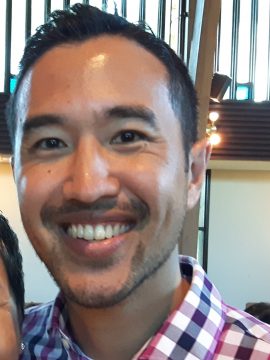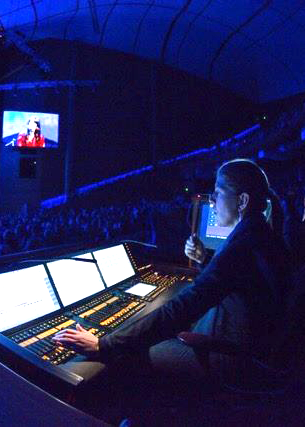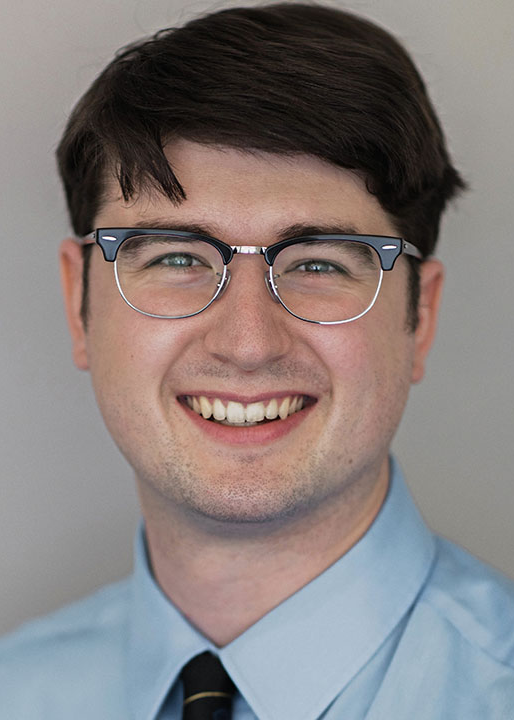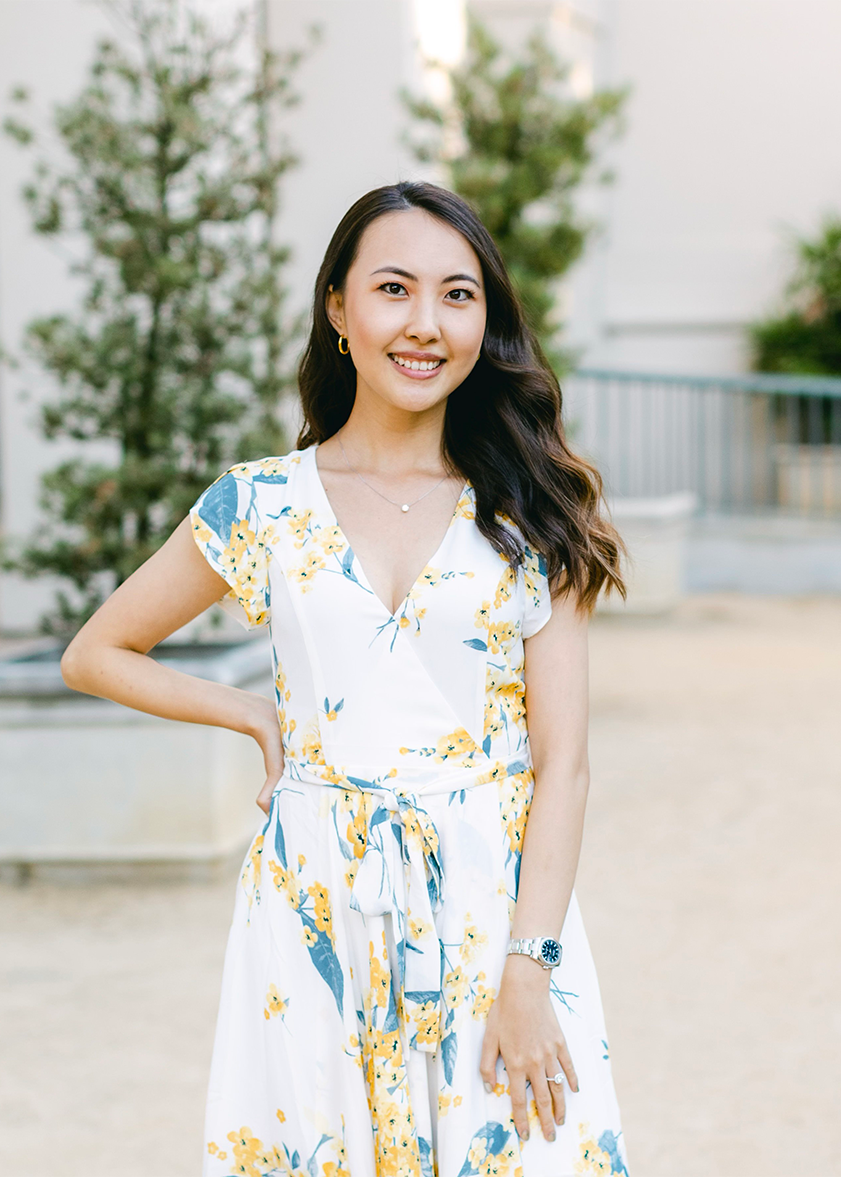Caleb Lee

Why did you choose your program at UBC and what did you enjoy most about it?
For my undergraduate degree, I chose to study within the Department of Linguistics because of my love for languages. I was interested in clinical applications of language knowledge, so I decided to major in Speech Sciences, with the intent of continuing on to a Master’s degree in speech-language pathology.
I appreciated, most of all, the humanity demonstrated by the Linguistics faculty; they cared not only about their subject area but also the people with whom they shared it.
What were some of your most meaningful experiences at UBC?
As a primarily introverted person, I enjoyed the individual “tutoring” sessions I received from more knowledgeable and/or skilled peers. Learning from them was different from learning from my professors, and I saw the value of the content more clearly when it was presented to me by them.
What choices did you make at UBC that contributed to your career success / journey?
Although these were not conscious choices necessarily, I enjoyed time spent with peers more advanced than I was and with professors who related to me more as a person than simply a student. My peers helped scaffold my learning, and my professors provided academic and personal aid in the forms of reference letters and general life advice, respectively
What was your first job after graduation and what other jobs did you have before your current position?
Since graduating with my BA in 2006, I’ve worked as a
- car rental administrator
- private language tutor
- credit coordinator at a car dealership
- speech-language assistant
- speech-language contractor
- car rental counter sales representative
- pastor in training
- claims clerk at an insurance company
- hairstylist in training
- background performer for films and television
- catering administrator
- English-as-a-Second-Language instructor for international students
- English-as-a-Second-Language instructor for immigrants and refugees
- sessional lecturer in the Department of Language and Literacy Education (LLED) at UBC
In 2020, I made a switch from academia to the corporate world, still working within education, but more in the vein of organizational learning strategy.
Is your current career path as you originally intended? What challenges did you face in launching your career?
I had originally intended on becoming a speech-language pathologist, but as I explored that career further, I realized it didn’t fit my personality; I needed a job that would offer more immediate results for my work, so I decided to stay within language and seek a position that would satisfy that aspect of me.
Possessing the necessary education and experience to move laterally or vertically in my field was a challenge, but perhaps the larger, more overarching challenge was developing the courage I needed to look into myself—and, eventually, love myself for what I had/have, have yet to have, and may never have.
What do you like about your current job and what do you find challenging? How does it relate to your degree?
In my current job, even though it’s still within education, the context is different (i.e., academic vs. corporate). Purpose, communication, and approach–among other things–are different, and I’ve needed to adapt. However, I have enjoyed gaining new knowledge, skills, and experience.
In terms of how my present experience relates to my degrees, for me, the content from my Speech Sciences and TESL degrees has given me lenses through which I can view the world–but the processes involved in obtaining those two degrees have given me the skills and experiences I need to “adult” in this world.
From your experience, what has been the value of having an Arts degree?
The ideological flexibility which I have developed during my time within the arts has served me well; I am able to relate well with people of diverse opinions and enjoy engaging in discussions about perspectives I may never have had the opportunity to consider without having met my friends, classmates, and professors.
What advice would you give to students and alumni interested in breaking into your industry?
Learn to relate to people. Education is all about people–people over, equal to, and under you. Whether you interact with them in an academic or corporate context, you will need their help.
What advice would you give your graduating self?
Stick with your interests. Continue to learn from people. Life will unfold in its own way and in its own time.
Caleb Lee



Why did you choose your program at UBC and what did you enjoy most about it?
For my undergraduate degree, I chose to study within the Department of Linguistics because of my love for languages. I was interested in clinical applications of language knowledge, so I decided to major in Speech Sciences, with the intent of continuing on to a Master’s degree in speech-language pathology.
I appreciated, most of all, the humanity demonstrated by the Linguistics faculty; they cared not only about their subject area but also the people with whom they shared it.
What were some of your most meaningful experiences at UBC?
As a primarily introverted person, I enjoyed the individual “tutoring” sessions I received from more knowledgeable and/or skilled peers. Learning from them was different from learning from my professors, and I saw the value of the content more clearly when it was presented to me by them.
What choices did you make at UBC that contributed to your career success / journey?
Although these were not conscious choices necessarily, I enjoyed time spent with peers more advanced than I was and with professors who related to me more as a person than simply a student. My peers helped scaffold my learning, and my professors provided academic and personal aid in the forms of reference letters and general life advice, respectively
What was your first job after graduation and what other jobs did you have before your current position?
Since graduating with my BA in 2006, I’ve worked as a
- car rental administrator
- private language tutor
- credit coordinator at a car dealership
- speech-language assistant
- speech-language contractor
- car rental counter sales representative
- pastor in training
- claims clerk at an insurance company
- hairstylist in training
- background performer for films and television
- catering administrator
- English-as-a-Second-Language instructor for international students
- English-as-a-Second-Language instructor for immigrants and refugees
- sessional lecturer in the Department of Language and Literacy Education (LLED) at UBC
In 2020, I made a switch from academia to the corporate world, still working within education, but more in the vein of organizational learning strategy.
Is your current career path as you originally intended? What challenges did you face in launching your career?
I had originally intended on becoming a speech-language pathologist, but as I explored that career further, I realized it didn’t fit my personality; I needed a job that would offer more immediate results for my work, so I decided to stay within language and seek a position that would satisfy that aspect of me.
Possessing the necessary education and experience to move laterally or vertically in my field was a challenge, but perhaps the larger, more overarching challenge was developing the courage I needed to look into myself—and, eventually, love myself for what I had/have, have yet to have, and may never have.
What do you like about your current job and what do you find challenging? How does it relate to your degree?
In my current job, even though it’s still within education, the context is different (i.e., academic vs. corporate). Purpose, communication, and approach–among other things–are different, and I’ve needed to adapt. However, I have enjoyed gaining new knowledge, skills, and experience.
In terms of how my present experience relates to my degrees, for me, the content from my Speech Sciences and TESL degrees has given me lenses through which I can view the world–but the processes involved in obtaining those two degrees have given me the skills and experiences I need to “adult” in this world.
From your experience, what has been the value of having an Arts degree?
The ideological flexibility which I have developed during my time within the arts has served me well; I am able to relate well with people of diverse opinions and enjoy engaging in discussions about perspectives I may never have had the opportunity to consider without having met my friends, classmates, and professors.
What advice would you give to students and alumni interested in breaking into your industry?
Learn to relate to people. Education is all about people–people over, equal to, and under you. Whether you interact with them in an academic or corporate context, you will need their help.
What advice would you give your graduating self?
Stick with your interests. Continue to learn from people. Life will unfold in its own way and in its own time.



